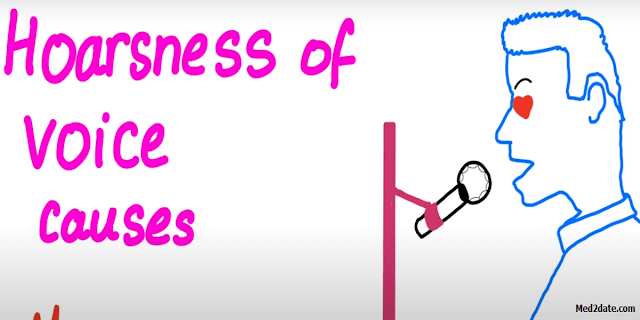Definition: Abnormal changes in the voice are called hoarseness or dysphonia. When hoarse, the voice may sound breathy, raspy, strained, or show changes in volume or pitch. Voice changes are
related to disorders of the vocal folds.
Etiology (Causes) of hoarseness
- Acute Laryngitis: The most common cause.
- Voice abuse and misuse: Especially in professional voice users.
- Benign Vocal Cord Lesions: Nodules, polyps, and cysts.
- Reinke’s oedema: Chronic and irreversible swelling of the vocal folds, it occurs more commonly in chronic heavy smokers.
- Specific inflammatory conditions: As contact ulcers or granuloma, intubation granuloma and chronic specific inflammations as tuberculosis of the larynx and laryngosleroma if it involves the glottic region
- Vocal Hemorrhage: Sudden loss of voice following a yell or other strenuous vocal use.
- Gastroesophageal Reflux (GERD): A possible cause of hoarseness is gastroesophageal reflux. Other typical symptoms of GERD include heartburn and regurgitation.
- Neoplastic lesions.
- Neurological Diseases or Disorders: A paralyzed vocal fold may be the cause of a weak, breathy voice. Hoarseness following thyroid surgery may be due to injury of the recurrent laryngeal nerve. Hoarseness can also appear in those who have neurological diseases such as Myasthenia gravis, Parkinson’s disease or a stroke.
- Laryngeal trauma
- Other Causes: These include allergies, angioneurotic edema, thyroid problems especially hypothyroidism, aging (presbylaryngis) and hormonal disturbances.
- Muscle tension dysphonia (functional dysphonia): it is one of the most important causes of dysphonia. Although it is often a diagnosis of exclusion (i.e. in the absence of other causes, as the vocal folds look and move normally), it is often present with inflammatory, structural and neurological conditions as laryngeal muscles try to overcome a deficiency in the voice producing mechanism.
Causes of hoarseness in children
- Congenital laryngeal web
- Posterior glottic stenosis and cricoarytenoid joint fixation: it can be congenital or resulting from intubation.
- Recurrent respiratory papillomatosis
- Vocal fold polyps or nodules resulting from abuse of voice
- Vocal fold paralysis: May be due to birth trauma or congenital anomalies of the central nervous system, heart and great vessels.
- Trauma: Either accidental by a foreign body or ingestion of caustic substances or iatrogenic due to injury of left recurrent laryngeal nerve during surgery for congenital anomalies of the heart and great vessels.
